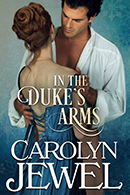First, catching up with news!
Book News!
A Notorious Ruin, Book 2 of the Sinclair Sisters series is in final edits. I should have a cover shortly. It’s getting real, folks! Readers of this blog probably know there is boxing in this story. I like it. Lots and lots.
Alphas Unleashed, a SciFi and Paranormal Romance Anthology is out now! My story is Dead Drop which is set in the My Immortals series world. There are stories by SE Smith, Mina Khan, me, and Michele Callahan. Here are some buy links should you be so moved:
Alphas Unleashed
Print is on its way…
The Next Historical
In October, I’ll have a story in a Historical Romance Christmas Anthology, In The Duke’s Arms. That’s the name of a coaching inn in Nottinghamshire. Get it? It’s going to be awesome. My story has the duke. I started writing it yesterday. The authors are:
Grace Burrows
Miranda Neville
Shana Galen
Carolyn Jewel (that would be me!)
Research!! How much did stuff cost?
I have a very good set of references on this, but it never hurts to look around for more information. I need to pull out those sources and get reacquainted with them. Allow me to digress a bit before I get to the point.
You may or may not recall that in the course of some other research, I came across information about taxes. That research also uncovered information about the British lottery. As in, you could win a lot. Which got me thinking…
Years ago, I read a story by Balzac in which a very poor character had been saving up money to buy into the national lottery using a special run of numbers. At last, the character has enough money and entrusts the money and her run of numbers to someone else to purchase the ticket. And the number wins!!! Only the person spent the money on something else and never bought the ticket. Then there’s the Conrad story (Or was it Henry James?) where a man’s son is reckless in every way the father fears and has warned him against. Except the young man places a wager that will bankrupt the boy … and he wins, and on and on, with everything turning golden for this young man. Those two stories have been bumping around in my head for years.
And so, it’s early days and everything could change, but the heroine who will find herself In The Duke’s Arms (bwahahahahah!) is a very poor relation who wins the lottery and then buys a house in Nottinghamshire. Assuming this stays as the basic premise, as I was notebooking, I got to wondering how much she should win, and what her initial expenses would be, what it would cost her to live in her house, and how much she could routinely give away as charity without compromising her future. Jane Austen, it turns out, budgeted the equivalent of $600. I have only one source for that so consider it unconfirmed.
And that lead me to this fantastic site: The Price of a Loaf of Bread. Go there. Bookmark the site. Spend hours reading. The link convention there is weird: highlights instead of underlining, so when you see that, it’s a link to more great content.
After clicking around to various places and sites, the yearly amount spent on food per average person during the Regency, was about £3.5, subject to variations depending on the harvest. In calculating my heroine’s possible expenses I bumped that figure up a bit, but not by much. I have decided, preliminarily, that she will win £75,000 pounds and spend £20-25,000 on her house, outfitting it, buying new clothes, staffing up, etc. I know from seeing period advertisements that rather large estates were advertised for £8-16,000 pounds.
And now here is my question for you:
The scenario:
You are a poor female relation, 25-28 years old, living with relatives who are heedless of you. You are a chaperone to the pretty young daughter with a fortune. Everyone likes you, though, because you are genuinely nice (even though sometimes you wish you didn’t have to be.) You can look forward to a life of dependency, as you have no fortune and are only average in looks.
And then…
You buy a lottery ticket and you win. A lot. Besides an estate, what would you buy for yourself? What indulgences would you allow yourself?
Go.

